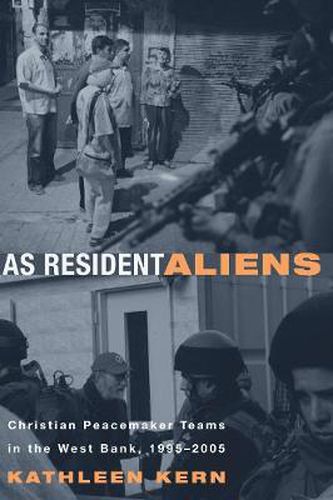Readings Newsletter
Become a Readings Member to make your shopping experience even easier.
Sign in or sign up for free!
You’re not far away from qualifying for FREE standard shipping within Australia
You’ve qualified for FREE standard shipping within Australia
The cart is loading…






This title is printed to order. This book may have been self-published. If so, we cannot guarantee the quality of the content. In the main most books will have gone through the editing process however some may not. We therefore suggest that you be aware of this before ordering this book. If in doubt check either the author or publisher’s details as we are unable to accept any returns unless they are faulty. Please contact us if you have any questions.
As the crucifixes drenched with Jewish blood drop from our hands, we stand impotent and wordless before this tragedy of Israel and Palestine … In the name of the crucified Messiah, we must struggle against the conditions which make history a trail of crucifixions. Only then, in solidarity with Jews and Palestinians, can we dream of Messianic times, of a shalom without victims. With these words, theologian Rosemary Radford Reuther laid out the pitfalls for Christians entering the arena of the Palestinian-Israeli conflict. Nevertheless, in 1995, a small cohort of pacifist Christians decided to paddle against the currents of history, against the crusades, pogroms, and colonial enterprises of their co-religionists, toward that goal of a shalom without victims. Setting up a project in the West Bank city of Hebron, over the next ten years Christian Peacemaker Teams forged relationships with Palestinians, Israelis, and internationals who were resisting the Israeli military occupation of Palestine. As resident aliens (See Exodus 23:9) they have sojourned in the Holy Land to support Palestinians and Israelis who reject violence as a means of solving the conflict, who think that one nation has no right to subjugate and exploit another, and who believe all the residents of the region are entitled to the same, exactly the same, human rights. This book charts the growth of CPT in Palestine, how it adapted to changing political conditions, spread to locations outside of Hebron, and developed networks with activists throughout Palestine and Israel.
$9.00 standard shipping within Australia
FREE standard shipping within Australia for orders over $100.00
Express & International shipping calculated at checkout
This title is printed to order. This book may have been self-published. If so, we cannot guarantee the quality of the content. In the main most books will have gone through the editing process however some may not. We therefore suggest that you be aware of this before ordering this book. If in doubt check either the author or publisher’s details as we are unable to accept any returns unless they are faulty. Please contact us if you have any questions.
As the crucifixes drenched with Jewish blood drop from our hands, we stand impotent and wordless before this tragedy of Israel and Palestine … In the name of the crucified Messiah, we must struggle against the conditions which make history a trail of crucifixions. Only then, in solidarity with Jews and Palestinians, can we dream of Messianic times, of a shalom without victims. With these words, theologian Rosemary Radford Reuther laid out the pitfalls for Christians entering the arena of the Palestinian-Israeli conflict. Nevertheless, in 1995, a small cohort of pacifist Christians decided to paddle against the currents of history, against the crusades, pogroms, and colonial enterprises of their co-religionists, toward that goal of a shalom without victims. Setting up a project in the West Bank city of Hebron, over the next ten years Christian Peacemaker Teams forged relationships with Palestinians, Israelis, and internationals who were resisting the Israeli military occupation of Palestine. As resident aliens (See Exodus 23:9) they have sojourned in the Holy Land to support Palestinians and Israelis who reject violence as a means of solving the conflict, who think that one nation has no right to subjugate and exploit another, and who believe all the residents of the region are entitled to the same, exactly the same, human rights. This book charts the growth of CPT in Palestine, how it adapted to changing political conditions, spread to locations outside of Hebron, and developed networks with activists throughout Palestine and Israel.